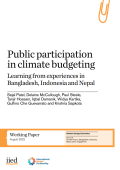
This case study explores the role of public participation in climate budgeting in these three countries by assessing these governments’ adherence to the Global Initiative for Fiscal Transparency (GIFT) principles of public participation in fiscal policy.
This case study demonstrates the difficulties of providing water utility services to low-income communities in Dhaka, Bangladesh, and potential policy solutions for providing clean, safe drinking water to slum residents.
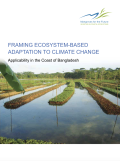
This case study, Framing Ecosystem-based Adaptation to Climate Change: Applicability in the coast of Bangladesh , describes six different types of EbA currently being practiced in the coastal zone of Bangladesh; and an analysis is made in line with the ecosystem services derived from such ecosystem-based interventions, including relevant policy and institutional aspects.
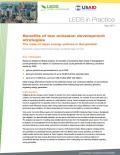
The case study Benefits of Low Emission Development Strategies: The Case of Clean Energy Policies in Bangladesh summarises the Resources to Advance LEDS Implementation (RALI) project’s modelling efforts and quantifies the potential job impacts associated with two different clean energy scenarios.
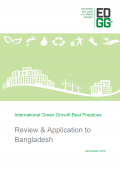
This report seeks to document international best practices in adopting green growth strategies. It explores why some countries decide to pursue a green growth path and how they transition to such a pathway. For many countries, green growth presents an attractive opportunity to achieve poverty reduction, environmental protection, and economic...
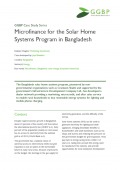
The Bangladesh solar home systems program, pioneered by non-governmental organisations such as Grameen Shakti and supported by the government’s Infrastructure Development Company Ltd., has developed a dealer network providing a marketing, microcredit, and after sales service to enable rural households to buy renewable energy systems for lighting and mobile phone...
